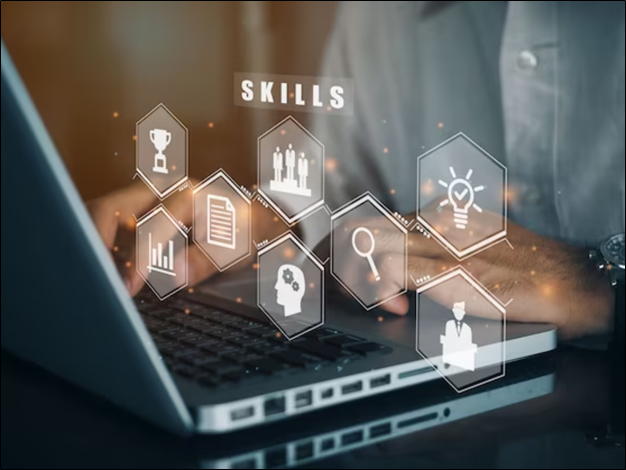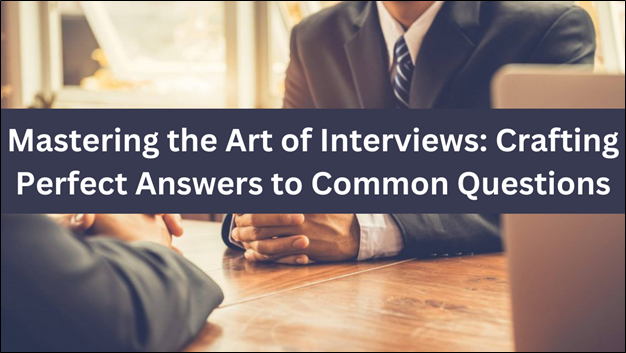Role of Artificial Intelligence in Pre-Screening and Initial Interview Stages

In today's fast-paced job market, where thousands of resumes flood HR departments daily, the task of pre-screening and conducting initial interviews can be a daunting and time-consuming challenge. Enter artificial intelligence (AI), a technology that is revolutionizing the recruitment process. AI is rapidly becoming a crucial tool in automating and streamlining pre-screening and initial interview stages, offering significant benefits for both employers and job seekers.
The Human Resource Challenge:
Before delving into the role of AI in these stages, it's important to understand the challenges HR professionals face during the recruitment process. The initial steps involve sifting through a mountain of resumes, which can be a monotonous and error-prone task. Identifying the right candidates who possess the necessary skills, qualifications, and cultural fit can be overwhelming, especially when time is of the essence. Additionally, conducting preliminary interviews to gauge a candidate's communication skills, demeanor, and suitability for the role requires a significant investment of time and resources.
AI-Powered Pre-Screening:
AI addresses these challenges head-on by automating and enhancing the pre-screening process. Here's how AI plays a crucial role in this phase:
Resume Parsing: AI algorithms can quickly scan and parse resumes, extracting key information such as qualifications, skills, work history, and education. This allows HR professionals to focus their attention on candidates who meet the job requirements.
Keyword Matching: AI can compare the keywords in job descriptions with the content of resumes to identify potential matches. This not only saves time but also ensures that no qualified candidate is overlooked.
Skill Assessment: Some AI systems can assess a candidate's skills based on the information provided in their resume. For instance, a system can evaluate a software developer's proficiency in programming languages or a marketer's expertise in digital marketing.

Cultural Fit Analysis: AI can also analyze the language used in resumes to determine if a candidate is likely to be a good cultural fit for the organization. This can help in shortlisting candidates who align with the company's values and goals.
By automating these tasks, AI significantly reduces the time and effort required for pre-screening, allowing HR professionals to focus on more strategic aspects of the hiring process.
The AI-Enhanced Initial Interview:
Once a pool of potential candidates has been identified through pre-screening, the next step is to conduct initial interviews. AI plays a vital role in optimizing this stage as well:
Chatbots and Virtual Interviews: AI-powered chatbots can conduct initial interviews with candidates, asking predefined questions and recording their responses. These virtual interviews can be scheduled at the candidate's convenience, eliminating scheduling conflicts and speeding up the process.
Video Analysis: AI can analyze video interviews to assess a candidate's non-verbal communication, facial expressions, and tone of voice. This provides valuable insights into a candidate's soft skills and emotional intelligence, which are often challenging to gauge from a resume alone.
Language Processing: AI can also analyze the language used by candidates during interviews to evaluate their communication skills, vocabulary, and articulation. This helps in identifying candidates with strong verbal abilities.
Personality Assessment: Some AI tools can analyze interview responses to provide insights into a candidate's personality traits and whether they align with the company's culture and values.
The Benefits of AI in Recruitment:
The integration of AI in pre-screening and initial interviews offers several advantages for both employers and job seekers:
Efficiency: AI streamlines the recruitment process, reducing the time and effort required to identify suitable candidates. This means faster hiring, which is essential in a competitive job market.
Objective Evaluation: AI assesses candidates based on predefined criteria, ensuring a more objective evaluation process. This reduces the risk of bias and discrimination in hiring decisions.
Improved Candidate Experience: AI-driven virtual interviews offer candidates the flexibility to interview at their convenience, improving the overall candidate experience.
Cost Savings: Automating pre-screening and initial interviews can lead to significant cost savings for organizations by reducing the need for human intervention at every step.
Better Matches: AI's ability to analyze resumes and interview responses in depth leads to better matches between candidates and job roles, ultimately improving employee retention rates.
Data-Driven Decisions: AI generates valuable data and insights that HR professionals can use to make informed hiring decisions and refine their recruitment strategies.
Challenges and Ethical Considerations:
While AI holds immense potential to revolutionize the recruitment process, it is not without its challenges and ethical considerations. Some of the key concerns include:
Bias in Algorithms: AI algorithms can inherit biases present in historical data. If not carefully monitored and trained, they may perpetuate discrimination in hiring.
Privacy Concerns: Collecting and analyzing personal data from candidates, even with their consent, raises privacy concerns. Establishments must ensure acquiescence with data protection regulations.

Transparency: The inner workings of AI algorithms can be complex and opaque. Organizations need to make an effort to explain how AI is being used in the hiring process to build trust with candidates.
Human Oversight: While AI can automate many aspects of recruitment, human oversight is essential to ensure that the technology is being used responsibly and ethically.
Tech Dependence: Overreliance on AI can lead to a disconnect in the human touch that is often essential in the hiring process, especially for roles that require strong interpersonal skills.
The Future of AI in Recruitment:
As AI continues to evolve, it will play an increasingly pivotal role in pre-screening and initial interview stages. The technology is expected to become even more sophisticated, with improved natural language processing, sentiment analysis, and bias mitigation capabilities.
Additionally, AI-driven recruitment platforms are likely to offer greater integration with other HR technologies, such as applicant tracking systems and onboarding tools, creating a seamless end-to-end hiring process.
In conclusion, the role of artificial intelligence in pre-screening and initial interview stages cannot be overstated. It is transforming the way organizations identify, assess, and hire talent. While challenges and ethical considerations remain, responsible AI adoption can lead to more efficient, objective, and data-driven hiring decisions, benefiting both employers and job seekers alike. As AI continues to advance, it is poised to become an indispensable tool in the HR toolkit, shaping the future of recruitment.









-16010477970.png)
